

As a nursery practitioner, you play a huge role in children’s development every single day. Here’s our tips taken from Dr Emmi Pikler for building positive and respectful interactions.
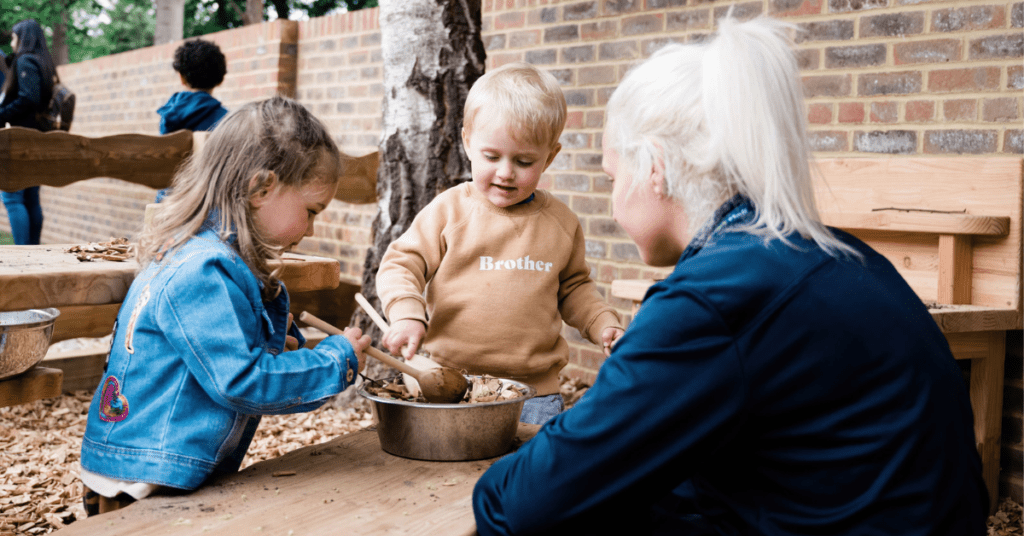

As a nursery practitioner, you play a huge role in the development of each child within your care. Through positive and respectful interactions with children, you can help enhance their learning, offer encouragement and make them feel supported, heard and valued. These interactions will look different for every child, but you must always ensure you respond to children’s cues in ways that are appropriate for their needs, offering your full attention to build trust with each child.
You are constantly building your relationship with children through every interaction you have with them during the day, and there are lots of opportunities to enhance this within your everyday care routines. When these interactions take place successfully, they promote a positive environment where children feel supported and can reach their full learning abilities.
Here are our tips, taken from ‘7 Key Principles’ from Dr Emmi Pikler for building responsive and respectful interactions to help support learning in your nursery.
When you give a child your full attention, you’re showing them respect and love. When you’re taking part in caring activities with children, such as feeding, changing nappies, touching, and observing, it should be done with all your focus. This brings stillness and sense back to our own chaotic and stressed lives and enables us to be able to divide our time rather than our attention.
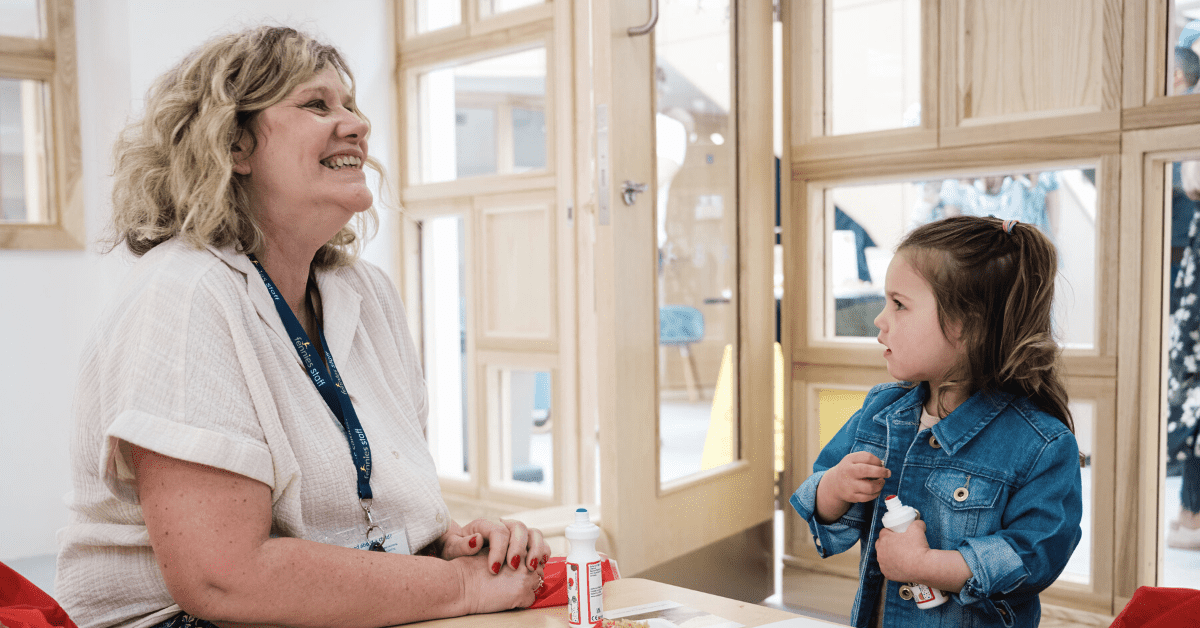

When you’re caring for several children at the same time, as you so often will be when working in a nursery, then each of them should receive your full attention at one time. Those individual moments you get, such as changing a nappy, are precious times that are the perfect opportunity to give your undivided attention.
As children’s brains are constantly absorbing everything around them, including sounds, colours, shapes, shades, meaning, patterns, and so much more, it’s not unusual for children to be overstimulated by our modern technological adult lives and become frustrated.
Babies develop better, are happier, and cry less when their environment is calm, and their caregiver is peaceful, collected, and treats them respectfully, especially during caring activities like washing and nappy changing.
Make caregiving moments like nappy changing, feeding, and dressing unhurried and pleasant. This can build trust between you and the child, showing them that you are respectful, caring and focused on them while responding to their needs. These moments should provide quality one on one time with the baby or child being an active partner.
Magda Gerber, an early childhood educator, said,
“When you approach your baby with an attitude of respect, you let them know what you intend to do and give them a chance to respond. You assume they are competent and involve them in their care and let them, as much as possible, solve their own problems. You give them plenty of physical freedom, and you don’t push development.”
Emmi Pikler’s Guiding Principles. (2009). Retrieved November 14, 2016 Tweet
Therefore, when you make these caregiving moments a calm experience, it communicates trust to the child. They can see that you trust them that they’re doing their best, and they trust you that you’ll do what’s in their best interest.
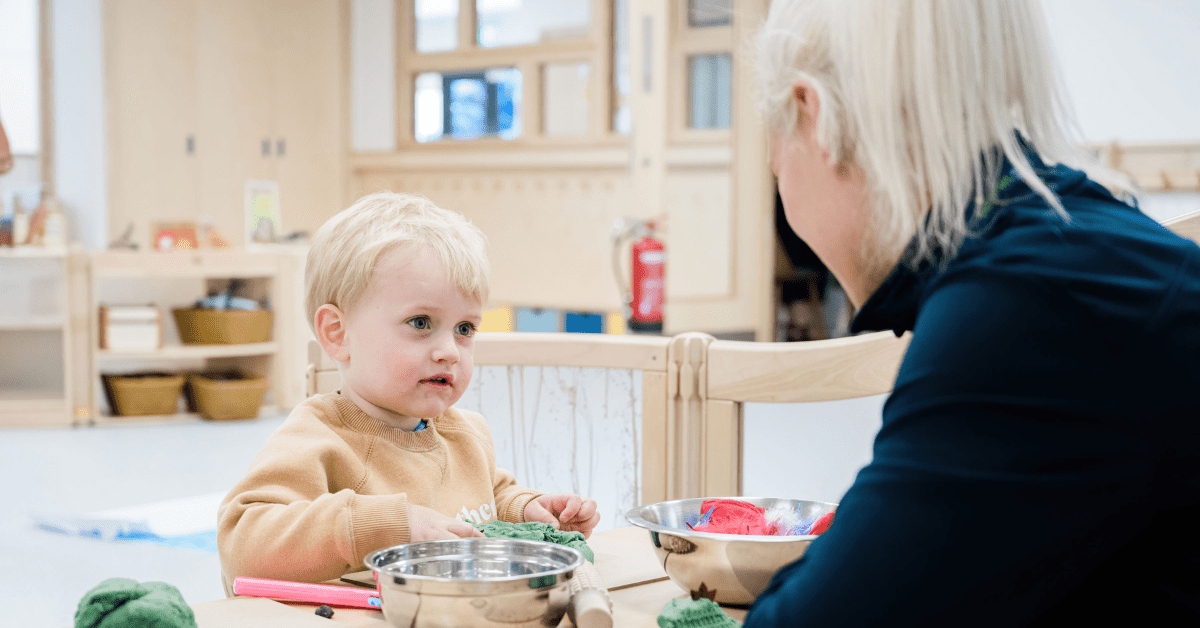

Babies that are given security and freedom during caring activities will learn what they need to do and will become competent and cooperative partners. This shows that these moments of caregiving are sacred in building real relationships with a person.
When building a cooperative relationship with a baby, it’s essential that you work together. To do this, you should talk to them regularly about what is about to happen, so that they’re given the option to help. An example of this could be inviting them to have their nappy changed, letting them know that you are going into the bathroom, warning them ahead of time that those wipes may be cold or allowing them to support with that self-care, using the wipes themselves. It’s also important to remember to be patient and allow them time to respond to you. This creates a space where they know that their voice is valued and heard.
Your patience will ensure babies have the time to respond. This will take more time at first, and each activity will be more energy-consuming at the beginning, but when this kind of reactive approach is being practised daily, you will see that the baby is used to being an active partner in the activities and they will participate more and more.
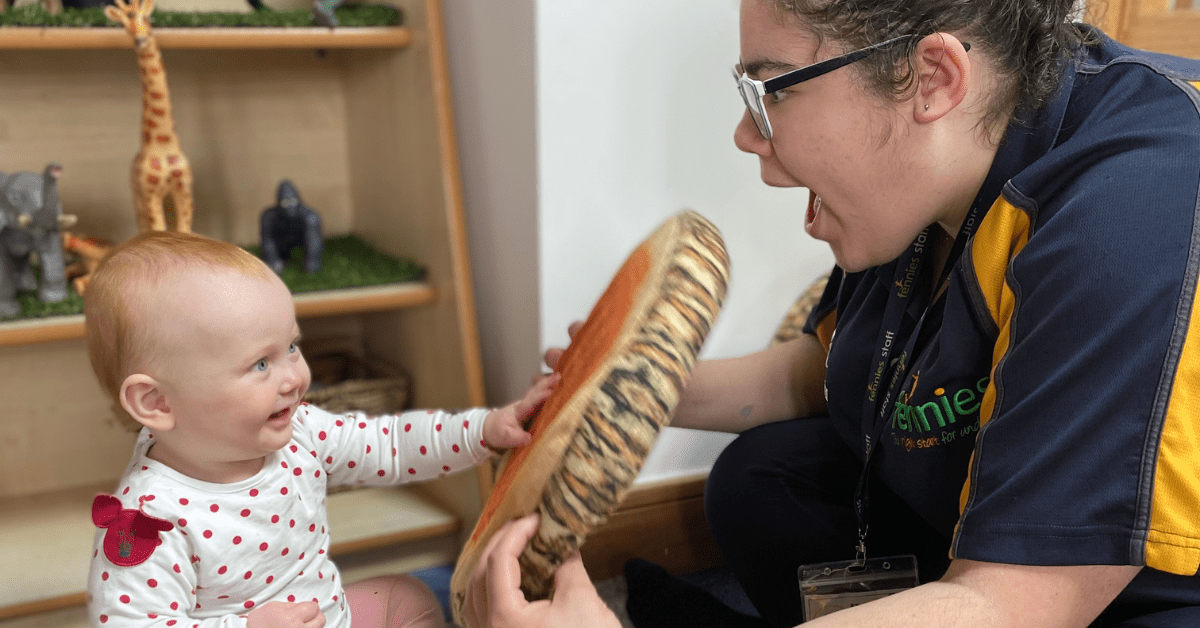

When babies are learning to lie on their stomachs, roll over, sit down, stand or walk, they’re not only learning the movements, but also the ability to do it. Through this process, they learn to do something themselves through experimentation and overcoming difficulties. They learn to experience the joy and satisfaction of success that results from patience and perseverance once they finally achieve what they’re attempting.
However, too often, adults place babies into these positions without allowing them to get there themselves. If you constantly put the child in a position that you think is comfortable, but that they couldn’t get into or out of, the child does not learn anything, and they become tense beacause they’re essentially ‘trapped’ and restrained in their movement.
Offering babies uninterrupted opportunities to explore and learn about their world by themselves can help them develop confidence and self-esteem.This process helps them learn who they are and develops in them a sense of being.
“Parents believe they treat their babies with respect. But if you watch well-meaning, loving adults, you’ll see that they will often interrupt baby’s play without a thought and treat them in other ways that could hardly be called respectful ... Let the child be the scriptwriter, the director and the actor in their own play.”
Magda Gerber, Emmi Pikler’s Guiding Principles. (2009). Retrieved November 14, 2016 Tweet
Babies send us cues all the time, and we must tune in to them respectfully. When we don’t ‘listen’ to these messages, we are letting them know, ‘I know you have a message that you are communicating with me — but I’m ignoring it.’
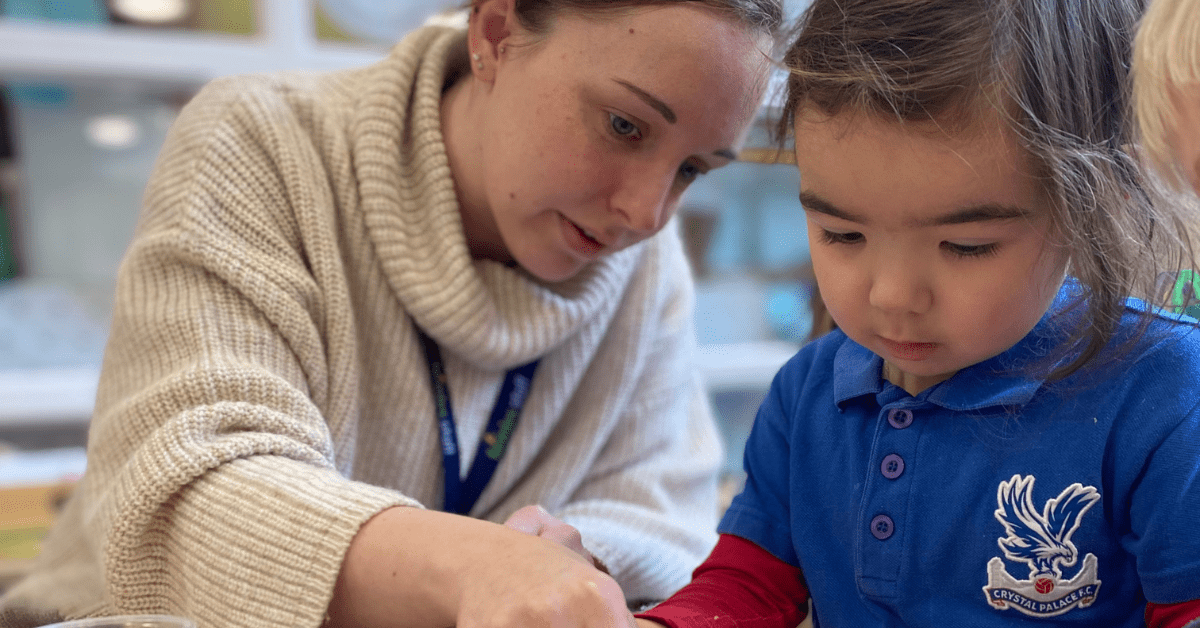

For example, when a baby turns their head away when you offer them another mouthful of vegetables, they try to demonstrate that they’ve eaten enough. When this happens, grown-ups are often guilty of offering another spoonful and saying, ‘just one more’ or ‘open the tunnel for the train, here it comes!’ in an attempt for them to eat more.
However, to be responsive and respectful of a child’s physical and verbal cues, we must pay attention to what they are clearly showing. This ensures the development of a culture of mutual respect.
It’s also important to invest time in developing relationships with children’s families in order to offer respectful interactions with the children in your care. By creating this partnership, you learn about how communications work at home as well as each child’s personal care routines. This information can be incredibly helpful as you can mirror these routines for the children in the nursery, by creating a consistent environment where children feel nurtured and open to learning.
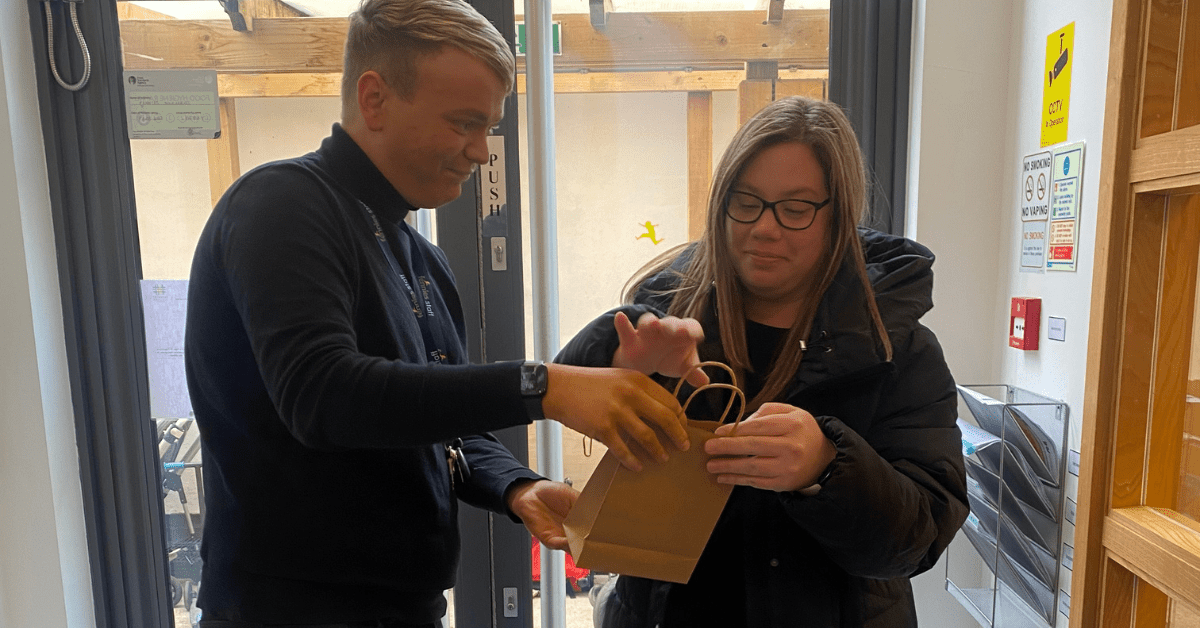

Respectful interactions are an integral part of our induction at Fennies, and they’re discussed with each member of staff during their start. Jamie Atkins, Academy Lead, explained just why this is so important;
“Each person brings a variety of experiences when joining Fennies which can bring great value to our conversations. We create opportunities to role–play and explore naptimes, mealtimes and personal care routines, ensuring that we are aware of Statutory Requirements, Fennies’s policies and procedures and the Birth to 5 Guidance.
Every child deserves to be treated with the respect that we, as practitioners, would want to receive. Each interaction and moment is a chance to deepen our attachments, to ensure we are attuned, recognising those verbal and nonverbal cues that children are constantly giving us. For each member of our team to be effective in their roles, they have to be able to know what to look for when children are interacting with them. We unpick the steps of ‘serve and return’ to make sure those cues are seen, heard and responded to!”


Content Writer












View All
This website uses cookies so that we can provide you with the best user experience possible. Cookie information is stored in your browser and performs functions such as recognising you when you return to our website and helping our team to understand which sections of the website you find most interesting and useful.
You can read out full privacy policy here
Strictly Necessary Cookie should be enabled at all times so that we can save your preferences for cookie settings.
If you disable this cookie, we will not be able to save your preferences. This means that every time you visit this website you will need to enable or disable cookies again.